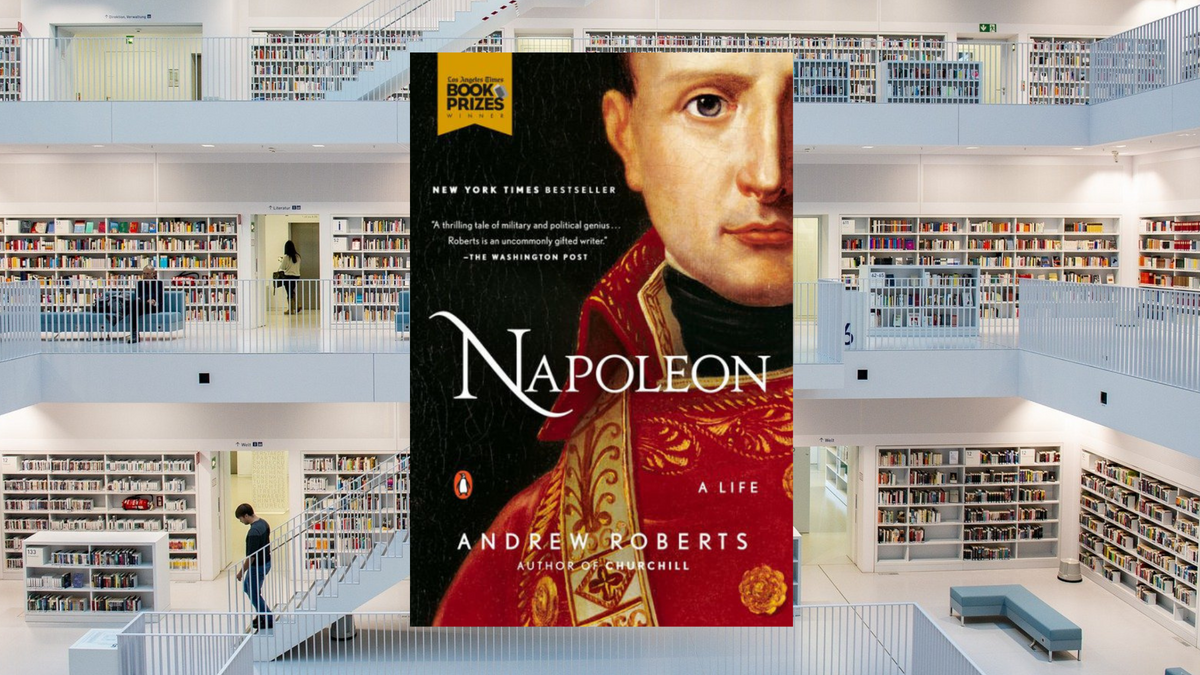
This Book is For:
*Anyone who wants to enlarge their life and expand their possibilities by drawing on the lessons - and warnings - available from within the life and adventures of one of history's most enthralling and mythical figures.
*History lovers with a special interest in 19th-century European history, the Enlightenment, and/or military history who are looking for a staggeringly good read.
*Anyone fascinated by psychology and human nature, especially as it plays out on the world stage, with high stakes, huge gambles, and the fate of continents and national destinies hanging in the balance.
Summary:
“They seek to destroy the Revolution by attacking my person. I will defend it, for I am the Revolution.”
-Napoleon, after the failure of the royalist assassination plot of 1804
It’s difficult to imagine how someone so active, so energetic, so alive could now be so still. There have been more books written with the word "Napoleon" in the title than there have been days since his death in 1821, but in a very real, visceral sense, this book brought him back to life, at least in my imagination.
It's more than a biography - it's a complete reimagining of Napoleon's adventures, impact, and legacy. In this, the shortest 800-page book I've ever read, I found myself repeatedly swept up in the larger-than-life majesty of Napoleon's life and campaigns, and I've pulled out some invaluable lessons that we can all apply to live bigger and better.
To lead into them, I'll just say that most of what we thought we knew about Napoleon has come from the British propaganda of the 19th century which, for totally understandable reasons, sought to discredit him, vilify him, and undermine his authority and reputation. To "bring him down to size," so to speak.
But, as the author, Andrew Roberts, points out, Napoleon wasn't even all that short! He was 5"6, which was an even more common height at that time. Roberts knows, because for "research" purposes, he actually laid down on Napoleon's deathbed and it was the perfect height (Roberts is 5"6 as well). That's just the beginning of Roberts' gargantuan research efforts.
For starters, he spent longer researching and writing this book than Napoleon himself spent on St. Helena and Elba put together (where Napoleon spent the rest of his life in exile).
He visited 53 out of the 60 battlefields Napoleon fought on during his career and even traveled to the distant island of St. Helena itself. This book is also different from other biographies because Roberts was able to make use of the around 33,000 personal letters that used to be stored in the Napoleonic archives but which were made available to historians for the very first time.
Roberts uses primary sources, and secondary sources, and gathers perspectives from everyone - the people who loved Napoleon, the people who hated him, and everyone in between. When he can’t find sufficient details to corroborate or deny certain stories, he tells you. And when different accounts contradict each other, he tells you that too.
Even the footnotes are worth reading! Seriously, some of the best stuff is hidden in there, and it's absolutely worth the extra few seconds to check them out. Here are a few of the "throwaway" facts and details that are waiting to be discovered all throughout the book:
*At the battle of Borodino between the French and the Russians, the French fired more than 60,000 cannonballs and 1.4 million musket balls. An average of three cannonballs and seventy-seven musket balls per second! That’s insane! A Russian soldier who was there later said that he had to keep his mouth open to balance the percussive impact of all that iron flying around.
*There's no known instance of Napoleon ever having been drunk.
*Asked whether Josephine (Napoleon's wife) had intelligence, Talleyrand (Napoleon's foreign minister) is said to have replied: "No one ever managed so brilliantly without it."
*Speaking of Talleyrand (I also loved his biography - the Duff Cooper one), Napoleon once called him "a shit in silk stockings."
*During one battle in Austria, a battalion of French soldiers was forced to retreat, and as they ran past Napoleon, they still remembered to shout, "Vive l’emperor!”
There's lots more where that came from in the Book Notes section below, but just the massive scale and scope of Napoleon's campaigns, his sweeping vision, and yes, his humanity...they all come together via Roberts' masterful storytelling to make this one of the greatest books I've ever read.
It’s actually astonishing how many of the institutions and laws and reforms that exist today come directly from him. Meritocracy, equality before the law, property rights, religious toleration, modern secular education and so much more were ushered in during Napoleon’s reign, and he championed all of them.
For example:
“By 1813 French secondary schools were the best in Europe and some of Napoleon’s original lycées, such as Condorcet, Charlemagne, Louis-le-Grand, and Henri IV, are still among the best schools in France two centuries later.”
During his reign, he ripped up the 42 different contradictory legal systems current in France and combined them all under one Code, versions of which are still used in 40 countries all over the world, hundreds of years later. He even instituted the number system that we in the West use for addresses, with odd numbers on one side and even numbers on the other.
Much of this is obscured, however, by the vast and effective British propaganda machine that sought to destroy him. I don't blame them at all - I mean, they were at war! - but you have to remember that 7 of those wars were declared on him, versus only the 2 that he started.
Most of the time, Napoleon was fighting defensively. It's just that he whipped his opponents so objectively and embarrassingly that he would gain territory because of the treaties the defeated countries were forced to sign afterward!
Not only that but, the genius strategist that he was, he knew the value in taking the fight to the enemy, instead of waiting for them to come to him. The best defense is a solid offense, and even though they started most of the wars, he finished them - and usually quite quickly!
It took almost every nation in Europe banding together in order to defeat him, and they had to adopt many of his reforms themselves in order to do it.
None of this is to downplay any of the horrors and atrocities directly attributable to Napoleon's ambition and hubris. He may not have been the monster many people portrayed him to be, but he did often use authoritarian methods to achieve liberal ends, and he was responsible for the creation of the secret police in France and for the unforgivable suppression of the freedom of speech, among other things.
Speaking of reading the footnotes, here's something from my notes that you would have missed if you skipped over them:
“When the Scottish poet Thomas Campbell proposed a toast to Napoleon at a literary dinner he was greeted with catcalls. ‘But, gentlemen,’ he cried out in his defense, ‘he once shot a publisher!’”
And because I can't help myself, here's another gem from my notes:
“Napoleon himself crossed on the 8th and made for Piacenza, whose governor opened the city gates for him after a short but frank explanation of what would happen to his city otherwise.”
All of this to say that this is a fairly balanced, nuanced biography, stuffed with wonder and pageantry, that gives you an amazing insight into 19th-century European history, and Napoleon's critical role in shaping it, but also the inspiration for making one's own life more of a spectacular adventure as well.
Napoleon wasn't a role model in every sense, but he was a creator, a builder; a deep thinker, and a thoughtful intellectual with a massive influence in the public sphere for literally centuries after his death. He is, in large part, responsible for the creation of the modern world - "the Enlightenment on horseback" - and we could do a lot worse than extracting the vital lessons from his life, keeping what is useful, discarding what is abhorrent, and making our lives the monument that his was.
I mean, as Victor Hugo pointed out, referring to the time after Napoleon abdicated in 1814 but then made it back to Paris without a shot being fired, here was a man who captured an empire just by showing his hat!
Napoleon's life story is endlessly exciting, but for him, it's over. After his death in 1821, he lost the ability to personally intervene in shaping the direction of the world. We still have that power, every moment of every day, right up until our very last one. We are, at all times, and with everything we do, acting on history. Our greatness will look different than Napoleon's. And in many ways, this is a good thing. But our story is just beginning.
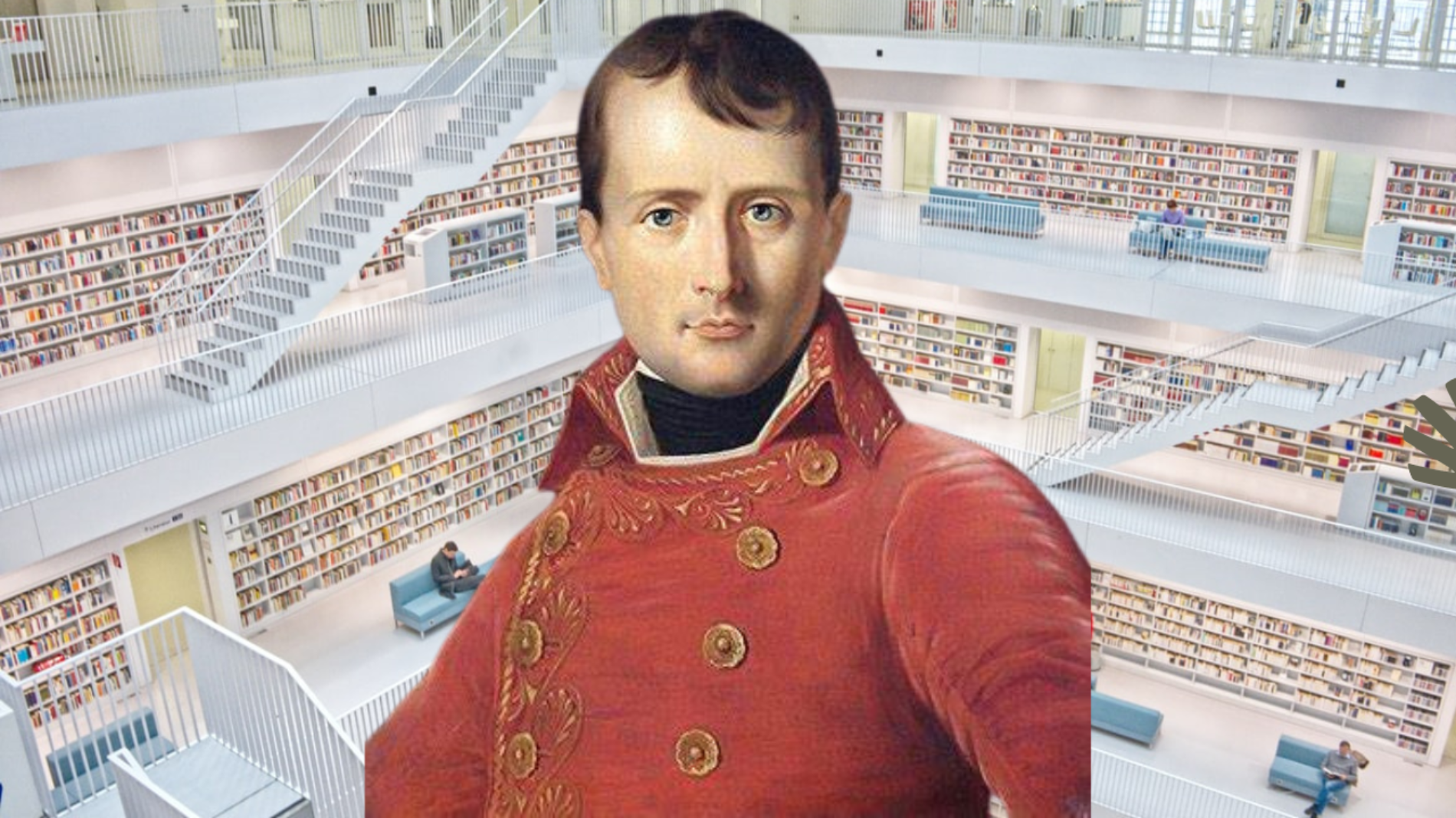
Key Ideas:
#1: The Education of a Conqueror
“There was nothing he valued so much as books and a good education.”
You don't get to be Napoleon without reading a ton of books. The love of reading and a deep recognition of the value of learning is a constant theme in the story of Napoleon's rise, beginning with his birth in 1769 in the out-of-the-way town of Ajaccio in Corsico, the year after Louis XV had bought the island from Genoa.
Napoleon would later move to France to begin his military education, but in this biography, Andrew Roberts tells of how Napoleon would sometimes skip meals in order to be able to afford books.
He would spend long stretches of uninterrupted time reading about the adventures and conquests of Alexander the Great, Caesar, and others, imagining himself matching their achievements and campaigning into India and beyond.
Napoleon was basically an outsider to the French elite, but he forced his way up through the ranks using his incredible capacity for hard work, his unique talents in mathematics and artillery, and his willingness to ask "stupid" questions and ruthlessly apply the answers. Humility isn't something you often associate with Napoleon, but he was willing to ask the simplest questions - the ones that most people are afraid to ask - if it would help him achieve his goals.
His first personal taste of great historical events came in 1792 when, as a young artillery captain, he watched the storming of the Tuileries in Paris, when the masses launched an uprising against the assembly, impressing upon him for the first time the power of the Parisian mob.
Napoleon was eventually selected to attend Paris's prestigious École Militaire, where he took every opportunity he could to develop his abilities, expand his learning, and advance his career. This impossible work ethic and dedication to success and achievement eventually resulted in his being named a Brigadier General at age 24.
When he was eventually crowned emperor on December 2nd, 1804, long before his memoirs from St. Helena would become the bestselling book of the 19th century, he was able to claim, "I am the Revolution."
#2: The Humanity of a Revolutionary
“The ideas that underpin our modern world – meritocracy, equality before the law, property rights, religious toleration, modern secular education, sound finances, and so on – were championed, consolidated, codified, and geographically extended by Napoleon.
To them, he added rational and efficient local administration, an end to rural banditry, the encouragement of science and the arts, the abolition of feudalism, and the greatest codification of laws since the fall of the Roman Empire.
At the same time, he dispensed with the absurd revolutionary calendar of ten-day weeks, the theology of the Cult of the Supreme Being, the corruption and cronyism of the Directory, and the hyperinflation that had characterized the dying days of the Republic.
‘We have done with the romance of the Revolution,’ he told an early meeting of his Conseil d’Etat, ‘we must now commence its history.’ For his reforms to work they needed one commodity that Europe’s monarchs were determined to deny him: time.”
Any honest account of Napoleon's life will give you plenty of reasons not to like the guy. Indeed, in the View from the Opposition section below, I go into more detail on some of these points. But the quote above shows you just how many liberal, humanitarian, forward-thinking reforms were instantiated by Napoleon - and defended by him - and we can't simply brush that off.
He moved Europe forward, even as he held France backward in many respects as well. After his downfall, it took France many decades to recover its former place among the leading countries of Europe, but many of the countries and rulers who opposed him during his life were forced to adopt some of his own reforms in order to defeat him.
I think it's also important to point out that it's difficult to judge the moral purity of individuals from former times, especially hundreds of years in the past. Times were different, and it's not obvious that you or I would have acted differently had we been living at that time. Cultural gravity is real, and how we're raised, the social pressures we grow up with, the influences we have acting upon us - all these and more determine the kinds of lives we lead and the beliefs we hold.
In Oxford philosopher Will McAskill's book, What We Owe the Future, he discusses the "permanence" of moral beliefs and how we often believe that we've reached the "end" of moral progress, but that perhaps, 250 years from now, people will look back at some of our common beliefs and judge us harshly for them.
But back to Napoleon. Roberts writes:
“Where he abolished the Inquisition, obscure feudal practices, anti-Semitic regulations, and restraints on trade and industry such as the guilds, Napoleon also brought genuine enlightenment to peoples who, without his armies’ victories, would have often remained without rights or equality before the law.”
These are not the actions of an evil dictator, even though some of these changes were most likely pragmatic or useful, and not made in response to genuine moral conviction. But even that is to put Napoleon in a darker light than he perhaps deserves. No doubt he had some moral work to do (at least by our 21st century standards), but there's no denying that the "Enlightenment on horseback" was driven by real, human regard for the well-being and flourishing of the French people and the nations for Europe.
But wait, there's more:
“By direct decree, Napoleon established a postal system, street lighting and cleaning, a coach service between Cairo and Alexandria, a mint, and a rational tax system with lower impositions on the Egyptian fellaheen (peasantry) than the Mamluks’ extortionary demands. He also abolished feudalism, replacing it with rule by the diwans, set up a new French trading company, built modern plague hospitals, and produced Egypt’s first printed books (in three languages).”
So for all the carnage and conquering, you have to ask yourself: Who else during that time period was able to effect so much positive change in the world and bring the future down to Earth?
#3: More Than Just a Fearsome General
“His proposers and supporters at the Institut undoubtedly thought it a boon to have the foremost general of the day as a member, but Napoleon was a bona fide intellectual, and not just an intellectual among generals.
He had read and annotated many of the most profound books of the Western canon; was a connoisseur, critic, and even amateur theorist of dramatic tragedy and music; championed science and socialized with astronomers; enjoyed conducting long theological discussions with bishops and cardinals; and he went nowhere without his large, well-thumbed traveling library.
He was to impress Goethe with his views on the motives of Werther’s suicide and Berlioz with his knowledge of music. Later he would inaugurate the Institut d’Egypte and staff it with the greatest French savants of the day. Napoleon was admired by many of the leading European intellectuals and creative figures of the nineteenth century, including Goethe, Byron, Beethoven (at least initially), Carlyle, and Hegel; he established the university of France on the soundest footing of its history. He deserved his embroidered coat.
Napoleon showed considerable tact when, having been offered a major role by the Directory in the no-longer-popular anniversary celebration of Louis XVI’s execution on January 21, he modestly attended in his Institut rather than his military uniform, sitting in the third row rather than next to the Directors.”
I read a book once that was ostensibly written by a former United States president who shall not be named, and I noticed something curious.
See, I take notes on every single book that I read, and reviewing my notes from this president's book, I saw that pretty much everything worth recording was something that someone else had said. There were very few original thoughts, very little to suggest that he had done much profound thinking himself. With Napoleon, the exact opposite is true.
Andrew Roberts writes that Napoleon was a bona fide intellectual (in the best sense of that term), and in this, he's absolutely correct. Napoleon actually knew his stuff; he had a genuine love and respect for learning and education, and this isn't surprising, given the wide-ranging educational reforms that he institutes, most of which are still in place today.
Not only did he value books, intellectual curiosity, and cultivation, but he showed great wisdom when it came to where and when to show it. More on this in the next Key Idea, but one thing I can say is that he knew how and when to fit in.
One of the biggest reasons why he enacted so many of his educational reforms is that he saw and felt and benefited from the power of those influences in his own life. He personally experienced the power of books and literature to transform destinies, and he wanted to confer that same benefit on the entire nation.
#4: Always Adopt the Religion of the Country You're In
“With the Bible guiding him about the faith of the Druze and Armenians, the Koran about Muslims, and the Vedas about the Hindus, he would be well supplied with suitable quotations for his proclamations to the local populations virtually wherever this campaign was finally to take him.”
In exactly the same way that Napoleon knew when to appear as an intellectual and when to appear as a commander, he had an extraordinarily refined sense of when it was appropriate to make himself appear as similar as possible to those people he was trying to win over.
He was a brilliant strategist of life, and by displaying his love and appreciation of the local holy texts, he would win over populations that would have been much more hostile.
I notice the same thing in my life, and I go out of my way - without pretentiousness - to show an appreciation of the culture and practices of the people with whom I meet. I used to live in India, and the Gita is one of my absolute favorite books of all time - truly. So when I mention that to people I meet who are from there, and/or who grew up with the Gita in their childhood home, it cuts through the illusion of being strangers and instantly connects me with whomever I'm talking to.
The key, of course, is to do this without being or sounding fake, and without assuming that just because someone is from China, they must be familiar with the writings of Confucius, or just because they're British, they must love Charles Dickens. That can get annoying fast.
But in the case of Napoleon, here you have a situation in which his superior education and wide reading prepared him to meet people of diverse backgrounds on the same footing and to win them over to the side of friendship (or at least, non-aggression) simply by showing a genuine interest in them.
And when he didn't have that genuine interest, he basically lied to them anyway and pretended he did. Same result! Nonetheless, he knew the power of sacred texts, the attachments people felt toward them, and the cohesiveness they offer to societies that have certain sacred texts in common. When tactically useful, he used his superior erudition to his strategic advantage, even if he didn't necessarily share those same religious beliefs.
In fact, he often showed himself to be a perceptive critic of dogma and indoctrination, such as when he had this realization:
“I was scandalized to hear that the most virtuous men of Antiquity would be burned in perpetuity because they did not follow a religion of which they had never heard.”
That's a good point! Napoleon was a critical thinker - a questioner - and not one to simply accept received wisdom without evaluating it for himself. He asked questions about everything he read, and he realized that no one has a monopoly on the whole truth. This worldview, and his political wisdom, allowed him to say:
“As for me, I always adopt the religion of the country I am in.”
#5: Mental Fluidity and the Cupboards of the Mind
“Different subjects and different affairs are arranged in my head as in a cupboard. When I wish to interrupt one train of thought, I shut that drawer and open another. Do I wish to sleep? I simply close all the drawers, and there I am – asleep.”
-Napoleon
The quote above sure is funny, but it's an interesting way of looking at the mind, and it gives a window into Napoleon's inner life. The way he was able to compartmentalize and shift from thinking about invading countries and negotiating with emperors one minute to giving domestic instructions the next is really quite astonishing.
One of the most impressive things about Napoleon is his level of action - which is discussed below - but just the genius (yes, genius) it takes to keep all these things straight in one's mind and to focus on them each in their turn is amazing.
The mental fluidity to keep all this straight, and the energy to put his plans and ideas into action...well, just read this passage from Andrew Roberts:
“Napoleon was able to compartmentalize his life to quite a remarkable degree, much more so even than most statesmen and great leaders. He could entirely close off one part of his mind to what was going on in the rest of it; he himself likened it to being able to open and close drawers in a cupboard.
On the eve of battle, as aides-de-camp were arriving and departing with orders to his marshals and reports from his generals, he could dictate his thoughts on the establishment of a girls’ school for the orphans of members of the Legion d-Honneur, and shortly after having captured Moscow, he set down the regulations governing the Comedie-Francaise.
No detail about his empire was too minute for his restless, questing energy. The prefect of a department would be instructed to stop taking his young mistress to the opera; an obscure country priest would be reprimanded for giving a bad sermon on his birthday; a corporal told he was drinking too much; a demi-brigade that it could stitch the words ‘Les Incomparables’ in gold onto its standard. He was one of the most unrelenting micromanagers in history, but this obsession with details did not prevent him from radically transforming the physical, legal, political, and cultural landscape of Europe.”
#6: The Bulletproof Messenger
“Throughout his career, he displayed an extraordinary ability to present terrible news as merely bad, bad news as unwelcome but acceptable, acceptable news as good, and good news as a triumph.”
The French phrase "to lie like a bulletin" originated with Napoleon, and a recurring theme in this biography is his deliberate - and often egregious - fudging of the numbers to put himself, his victories, and his defeats, in a better light, and so reassure and gaslight the French people.
Napoleon was adaptable and wise, an astute observer of people, and also of his own effects on them. You can cultivate this yourself, and it will separate you from the masses of men and women with hardly any self-awareness to speak of. You know the ones: people who constantly commit these social blunders due simply to their ignorance about how well or poorly they're coming across. So wrapped up in themselves and what they have to say, they are oblivious to how their words and messages are being received.
Napoleon had enough social intelligence to measure his impact on people, and it's an underrated life skill that will serve you every day of your life.
You don't have to lie or obscure the truth - just pay attention to how people are responding to your overtures, and then adjust your words or mannerisms if you find that you're not having the desired effect. Even just a little bit more self-awareness goes a long way, and it's a lifelong process of continually refining your approach until you have a pretty good idea of the appropriate things to say (and not say) to your intended audience in order to get what you want.
#7: You Too Can Make History
“He convinced his followers they were taking part in an adventure, a pageant, an experiment, and a story whose sheer splendor would draw the attention of posterity for centuries.
He was able to impart to ordinary people the sense that their lives – and, if necessary, their deaths in battle – mattered in the context of great events. They too could make history.
It is untrue that he cared nothing for his men and was careless with their lives. He lost a friend in almost every major battle, and his letters to Josephine and Marie Louise make it clear that these deaths, and those of his soldiers, affected him.
Yet he could not allow that to deflect him from his main purpose of pursuing victory, and he would not have been able to function as a general if it had, any more than Ulysses Grant or George Patton could have done.
Napoleon certainly never lacked confidence in his own capacity as a military leader. On St Helena, when asked why he had not taken Frederick the Great’s sword when he had visited Sans Souci, he replied, ‘Because I had my own.’”
History is not over. This is an illusion. It's only because we find it harder to visualize the future than to remember the past that we think we've reached some "end point" in human history and evolution. This is a mistake, especially since it takes away much of our own agency, our sense that we have the freedom and potential to create a vivid, impressive future.
In What We Owe the Future, the Oxford philosopher Will McAskill discusses long-term-ism, which is the idea that the human future is potentially far vaster than we can easily conceptualize. If we don't destroy ourselves, we could be at the very beginning of human history, and someone is going to have to shape our future. Why can't it be you and I?
One of the major lessons from Napoleon's life is that, alongside powerful, societal forces influencing the course of human history, the individual still has a vital part to play. Yes, he was born at a certain time and place, with unique skills, opportunities, advantages, and disadvantages. But his life was what his thoughts and actions made it, and he chose to make his larger than life. In contrast, we think too small, and believe that the future is over when it's really just beginning.
#8: You Must Take Massive Action
“Winning is not enough if one doesn’t take advantage of success.”
-Napoleon
Words move hearts, and hearts move limbs. Reading about great figures from history can be just an idle pastime or a fleeting interest, or it can motivate us to take massive action to make our lives what they could be.
And that really is what it's going to take. To reach your personal vision and actualize it in the world you will need to go all-in. It's going to take a lot longer, and it's going to be a lot harder than you think it will, but you have to be aware of that price and then resolve to pay it.
Most importantly, you have to increase your level of action to near-Napoleonic levels. When you think of how much action that man took - it's just wild. The distances he traveled, the tens of thousands of letters he wrote, the commands he issued, and the countries he invaded...amazing.
You have to commit to this level of action as well, if you want to achieve success of a similar nature. Even building a business or developing a skill requires this level of "unreasonable" action. What I mean by that is, if you committed to insane levels of focused activity, it would be unreasonable to assume that you would fail. That's the kind of action I'm talking about.
Be willing to take so much action, complete so many reps, do so much work, that your success is virtually guaranteed. You don't unite a country and conquer Europe without being willing to go there, to put forth that effort, to strive that valiantly. So why would you put any less effort toward accomplishing your biggest dreams?
#9: Napoleon's Tragic Downfall
“My own interpretation is very different from other historians’. What brought Napoleon down was not some deep-seated personality disorder but a combination of unforeseeable circumstances coupled with a handful of significant miscalculations: something altogether more believable, human, and fascinating.”
The eventual defeat of Napoleon has been written about and discussed and argued over ever since it happened, but Andrew Roberts' take is altogether different than many other historians' interpretations. For one thing, he argues that ironically enough, Napoleon didn't have a Napoleon complex.
His story is, instead, more like that of a Shakespearean tragic hero who chose the fatal path, despite others being available. It was a defeat that could have been avoided - if, again ironically, Napoleon had followed his own military maxims - but that he moved inexorably toward during his final years as emperor, and especially during and after the Russia campaign.
As Roberts says:
“None of his opponents could threaten the existence of the largest European empire since Ancient Rome, larger even than Charlemagne’s. Only Napoleon himself could do that.”
He goes on to explain:
“Not committing the Guard at Borodino, staying too long in Moscow and Leipzig, splitting his forces in the Leipzig and Waterloo campaigns and, finally, coming to the decisive engagement on ground which his opponent had chosen; all were the result of Napoleon not following his own military maxims.”
It's hardly like the story of Nemesis coming to punish those filled with hubris, convinced of their own invincibility, but rather the story of luck running out, fatal blunders being made, and mixed with some ignominious betrayal.
The fact is that his downfall was Napoleon's own fault, but not necessarily for the reasons most people think. We'll start with the Russia campaign:
Napoleon had beaten the Russians twice before, and he knew about the Russian winters - from reading Voltaire - so it's not like he didn't know what he was up against. At the time of his invasion, he commanded the largest army in the history of the world (as big as the population of Paris), and so he had reason to be fairly confident in his victory. It wasn't some reckless act of a hubristic madman, driven onwards by megalomania.
Remember, it took an entire continent to bring him down, and they tried seven times. His attempted imposition of the "continental system" was a major contributing factor in the emergence of this coalition, and then typhus eliminated one-fifth of his army in Russia.
Luck was also an ever-present force in Napoleon's life, especially after deciding to turn back from Moscow. His engineers were able to assist in an exciting escape, building flexible bridges across the freezing Berezina River, hidden from the advancing Russian army. If the Russians had been able to prevent this daring escape, Napoleon may never have made it back to Paris.
Actually, speaking of luck, there were numerous instances during Napoleon's rise where, if his superiors had bothered to read the reports about his behavior and tendencies - the desertions, the switching sides, the intrigue - he could very well have been executed for treason well before he even became emperor in the first place.
This time, however, Napoleon's luck finally ran out, as he was being driven from Russia and subsequently defeated at Leipzig at the same time as the British General Wellington entered France.
Truth be told, I actually had a difficult time reading the final fifty pages of this epic biography, as I hated seeing Napoleon being brought down to earth by his own tactical mistakes, the betrayals of certain key generals, and the momentum of history. His single-minded vision, his grand ambition, his humanity, and his stunning boldness leaped off the page, and even still, I find it difficult to imagine that someone like that ever truly perished from the earth.
The leaders of Paris surrendered to the Coalition on the last day of March 1814, and shortly after that, he offered his unconditional abdication and was later exiled to the island of Elba. Perhaps not surprisingly, he escaped from Elba, led a small contingent back to Paris, and retook the throne. He ruled for a period known as the Hundred Days, after which he was soundly defeated at Waterloo and eventually exiled a second time (this time to Saint Helena) where he died of stomach cancer in 1821 at age 51.
As Andrew Roberts paints the scene:
“The next day, Saturday, May 5, 1821, after a very blustery and stormy morning, the fifty-one-year-old former Emperor gave three sighs at long intervals and died at 5:49pm, just after the firing of the island’s sunset gun. What Chateaubriand called ‘the mightiest breath of life that ever animated human clay’ had ceased.”

Book Notes:
“Having now spent longer researching and writing this book than Napoleon himself spent on St. Helena and Elba put together, I’ve collected a disconcertingly large array of people whom I would like to thank for their unfailing generosity, good nature, time, and help.”
“I would also like to apologize profoundly to Jerome Treca and the staff of Fontainebleau Palace for setting off the burglar alarms in Napoleon’s throne room no fewer than three times.”
“When he decided to divorce for dynastic and geostrategic reasons, Josephine was desolate but they remained friendly. Napoleon’s second wife, Marie Louise, would also be unfaithful to him, with an Austrian general Napoleon had defeated on the battlefield but clearly couldn’t match in bed.”
“More books have been written with Napoleon in the title than there have been days since his death in 1821.”
“‘They seek to destroy the Revolution by attacking my person,’ he said after the failure of the royalist assassination plot of 1804. ‘I will defend it, for I am the Revolution.’”
“What a novel my life has been!”
-Napoleon
“There is little doubt that he was a precocious and prodigious reader, drawn at an early age to history and biography.”
“I was scandalized to hear that the most virtuous men of Antiquity would be burned in perpetuity because they did not follow a religion of which they had never heard.”
“Napoleon spent his nights writing his history of Corsica and re-reading Caesar’s Gallic Wars, committing whole pages of it to memory.”
“The Bonapartes arrived in Toulon as political refugees with little more than Letizia’s life savings and Napoleon’s modest salary as a captain in the 1st Regiment of Artillery to pay for the fatherless family of nine. Otherwise, Napoleon had nothing except his education and his ambition to sustain them.”
“Later in the three-month siege, he was helped by two aides-de-camp, Auguste de Marmont and Andoche Junot. Marmont came from a good family and Napoleon liked him very much, but he loved Junot, a former battalion quartermaster on the Cote d’Or, from the moment that a cannonball landed near them while he was dictating a letter, spraying dust and gravel over them both, and Junot coolly remarked that now he wouldn’t need any sand to blot it.”
“On December 22, 1793, having been on leave for fifty-eight of his ninety-nine months of service – with and without permission – and after spending less than four years on active duty, Napoleon was made, at twenty-four, a general.”
“It is a well-known historical phenomenon for a sexually permissive period to follow one of prolonged bloodletting: the ‘Roaring Twenties’ after the Great War and the licentiousness of Ancient Roman society after the Civil Wars are but two examples.”
“Nothing is more salutary than appropriately severe examples.”
“Since the campaign had begun a year earlier, Napoleon had crossed the Apennines and the Alps, defeated a Sardinian army and no fewer than six Austrian armies, and killed, wounded, or captured 120,000 Austrian soldiers. All this he had done before his twenty-eighth birthday.”
“Napoleon taught ordinary people that they could make history, and convinced his followers they were taking part in an adventure, a pageant, an experiment, an epic whose splendor would draw the attention of posterity for centuries to come.
During military reviews, which could last up to five hours, Napoleon cross-examined his soldiers about their food, uniforms, shoes, general health, amusements, and regularity of pay, and he expected to be told the truth.
‘Conceal from me none of your wants,’ he told the 17th Demi-Brigade, ‘suppress no complaints you have to make of your superiors. I am here to do justice to all, and the weaker party is especially entitled to my protection.’”
“Napoleon’s rhetorical inspiration came mostly from the ancient world, but Shakespeare’s St Crispin Day’s speech from Henry V can also be detected in such lines as ‘Your countrymen will say as they point you out, He belonged to the Army of Italy.’”
“Efficient staff-work helped Napoleon to ‘recognize’ old soldiers from the ranks, but he also had a phenomenal memory. ‘I introduced three deputies of the Valais to him,’ recalled an interior minister, ‘he asked one of them about his two little girls. This deputy told me that he had only seen Napoleon once before, at the foot of the Alps, as he was on his way to Marengo.’ The encounter had taken place ten years earlier.”
“By November 30 Cairo had sufficiently returned to normality to allow Napoleon to open the Tivoli pleasure gardens, where he noticed an ‘exceedingly pretty and lively young woman’ called Pauline Foures, the twenty-year-old wife of a lieutenant in the 22nd Chasseurs, Jean-Noel Foures.
If the beautiful round face and long blonde hair described by her contemporaries are indeed accurate, Lieutenant Foures was unwise to have brought his wife out on campaign. It was six months since Napoleon had discovered Josephine’s infidelity and within days of his first spotting Pauline, they were having an affair.
Their dalliance was to take on the aspect of a comic opera when Napoleon sent Lieutenant Foures off with allegedly important despatches for Paris, generally a three-month round-trip, only for his ship to be intercepted by the frigate HMS Lion the very next day.
Instead of being interned by the British, Foures was sent back to Alexandria, as was sometimes the custom with military minnows. He, therefore, reappeared in Cairo ten weeks before he was expected, to find his wife installed on the grounds of Napoleon’s Elfey Bey palace and nicknamed ‘Cleopatra.’”
“Tragically, the Institut near Tahrir Square in Cairo was burned down during the Arab Spring uprising on December 17, 2011, and almost all its 192,000 books, journals, and other manuscripts – including the only handwritten manuscript of Denon’s Description de l’Egypte – were destroyed.”
“Talleyrand was characteristically profiting from the situation. When Napoleon years later asked him how he had made his fortune, he insouciantly replied ‘Nothing simpler; I bought rentes [government securities] on the 17thBrumaire and sold them on the 19th.’”
“We are here to guide public opinion, not to discuss it.”
-Napoleon
“Moreau had sneered at a previous attempt by Napoleon to reintroduce honours, awarding his cook ‘the order of the saucepan.’ In the army, however, the Legion was an instant success. It is impossible to say how many acts of valor were undertaken at least in part in the hope of being awarded ‘the cross,’ as it was universally known.”
“Although Madame Mere hadn’t attended the coronation, when she was congratulated on her son’s elevation to the imperial purple her reply was replete with her natural fatalism and great common sense. ‘Pourvu que ça dur,’ she said. ‘Let’s hope that it lasts.’”
“Eh bien, mon prince,’ so Genoa and Lucca are now no more than private estates of the Bonaparte family,’ is the opening line of War and Peace, although the speaker, Anna Pavlovna Scherer, was wrong about Genoa, which was a department of the Empire.”
“Francis was forced to recognize Napoleon as king of Italy, pay 40 million francs in reparations, and promise that there would be ‘peace and friendship' between him and Napoleon ‘for ever.’
The Austrian Emperor had lost over 2.5 million subjects and one-sixth of his revenues overnight, as well as lands that the Habsburgs had held for centuries, making the likelihood of eternal friendship very unlikely.”
“When the Scottish poet Thomas Campbell proposed a toast to Napoleon at a literary dinner he was greeted with catcalls. ‘But, gentlemen,’ he cried out in his defense, ‘he once shot a publisher!’”
“On the afternoon of October 13, as Napoleon rode through Jena, he was spotted by the philosopher Georg Wilhelm Friedrich Hegel from his study window. Hegel, who was writing the last pages of The Phenomenology of Spirit, told a friend that he had seen ‘the Emperor, this Weltseele [world-soul] ride out of town…Truly it is a remarkable sensation to see such an individual on horseback, raising his arm over the world and ruling it.’
In his Phenomenology Hegel posited the existence of the ‘beautiful soul,’ a force that acts autonomously in disregard of convention and others’ interests, which, it has been pointed out, was ‘not a bad characterization’ of Napoleon himself.”
“The fall of Berlin came so quickly that shopkeepers didn’t have time to take down the numerous satirical caricatures of Napoleon from their windows. As in Venice, the Emperor had the city’s Quadriga and winged Victory removed from the Brandenburg Gate and taken back to Paris, while prisoners from the Prussian Guard were marched past the same French embassy on whose steps they had so hubristically sharpened their swords the previous month.”
“I am very happy to see the enemy wished to avoid our coming to him.”
“Napoleon sat on a simple wooden chair and ate a lunch of black bread within range of the Russian guns. When his attendants begged him to withdraw, he said: ‘They will dine less comfortably than I will lunch.’”
“Napoleon brandy is ill-named as he never drank any spirits, habitually taking one cup of coffee after breakfast and another after dinner. There is no known example of his ever being drunk.”
“When a staff officer had his helmet knocked off by a cannonball, Napoleon joked: ‘It’s a good job you’re not any taller!’”
“Lightly wounded in this attack, Wrede melodramatically cried out, ‘Tell the Emperor I die for him!’ only to receive the robust reply from MacDonald: ‘You’ll live; tell him yourself.’”
“She was hardly exiled from Paris, however, as she kept the Elysée Palace as part of her settlement. Napoleon gave her Malmaison and the fourteenth-century Chateau Navarre in Normandy, which had cost him 900,000 francs, and she maintained her rank of empress, all honors and prerogatives, while her debts of 2 million francs were paid off and she enjoyed 3 million francs per annum in income for life. As Frederick the Great said of Maria Theresa at the time of the first partition of Poland: ‘She wept, but she took.’”
“‘My family is allied to the families of all the sovereigns of Europe,’ he said. The fact that all four families currently longed for his overthrow in no way lessened his satisfaction.”
“Overall the French fired 60,000 cannonballs and 1.4 million musket balls that day. Even if the Russians were firing at a lesser rate, and there is no indication that they were, an average of over three cannonballs and seventy-seven musket balls were therefore fired per second throughout the battle. A Russian aide-de-camp observed that while crossing the battlefield he had to keep his mouth open in order to stabilize the percussive pressure on his ears of all this flying iron.”
“The combined losses are the equivalent of a fully laden jumbo jet crashing into an area of 6 square miles every five minutes for the whole ten hours of the battle, killing or wounding everyone on board.”
“It’s not enough to kill a Russian. You have to push him over too.”
“Those who have returned have their balls attached by iron wire.”
-Marshall Ney
“One of the accusations made by his detractors was that Napoleon wasn’t personally brave. ‘Cowardice had of late years been habitual to Bonaparte,’ wrote the English writer Helen Williams in 1815, for example.
This is absurd; not only do cowards not fight sixty battles, but Napoleon came near death several times between battles too, while reconnoitering close to the enemy. The number of people killed near him and the bullet that hit him at the battle of Ratisbon are further testaments to his great physical bravery. Napoleon’s troops appreciated his courage and his ability to magnify their own.
When all the gunners trying to establish a battery of cannon within a pistol shot of Fort Mulgrave were killed or wounded, Napoleon christened it ‘Hommes Sans Peur’ (Men Without Fear) and thereby continued to receive volunteers to man it. Nobody better understood the psychology of the ordinary soldier.”
“Posterity would never have seen the measure of your spirit if it had not seen it in misfortune.”
“Vandamme was a reckless swashbuckler of whom Napoleon said that every army needed one, but that if there were two he would have to shoot one of them.”
“Adversity shall find me superior to its blows.”
-Napoleon
“‘The ungrateful wretch,’ Napoleon said, ‘he will be more unhappy than me.’ The word ragusard was adopted to mean traitor, and Marmont’s old company in the Guard was nicknamed ‘Judas company.’
Even three decades later, when he was an old man living in exile in Venice, children used to follow him about, pointing and shouting, ‘There goes the man who betrayed Napoleon!’”
“The soul wears out the body.”
-Napoleon
“Napoleon spread maps all over the billiard table, using billiard balls to hold them open, and sought to remember the events of his sixty battles with the help of his bulletins. When asked by a visitor how he could recall the details of units that fought in each engagement, he replied: ‘Madam, this is a lover’s recollection of his former mistress.’”
“The ambition he had conceived as a schoolboy at Brienne, and from which he had never wavered, had been achieved. He had transformed the art of leadership, built an empire, handed down laws for the ages, and joined the ancients.”

Important Insights from Related Books:
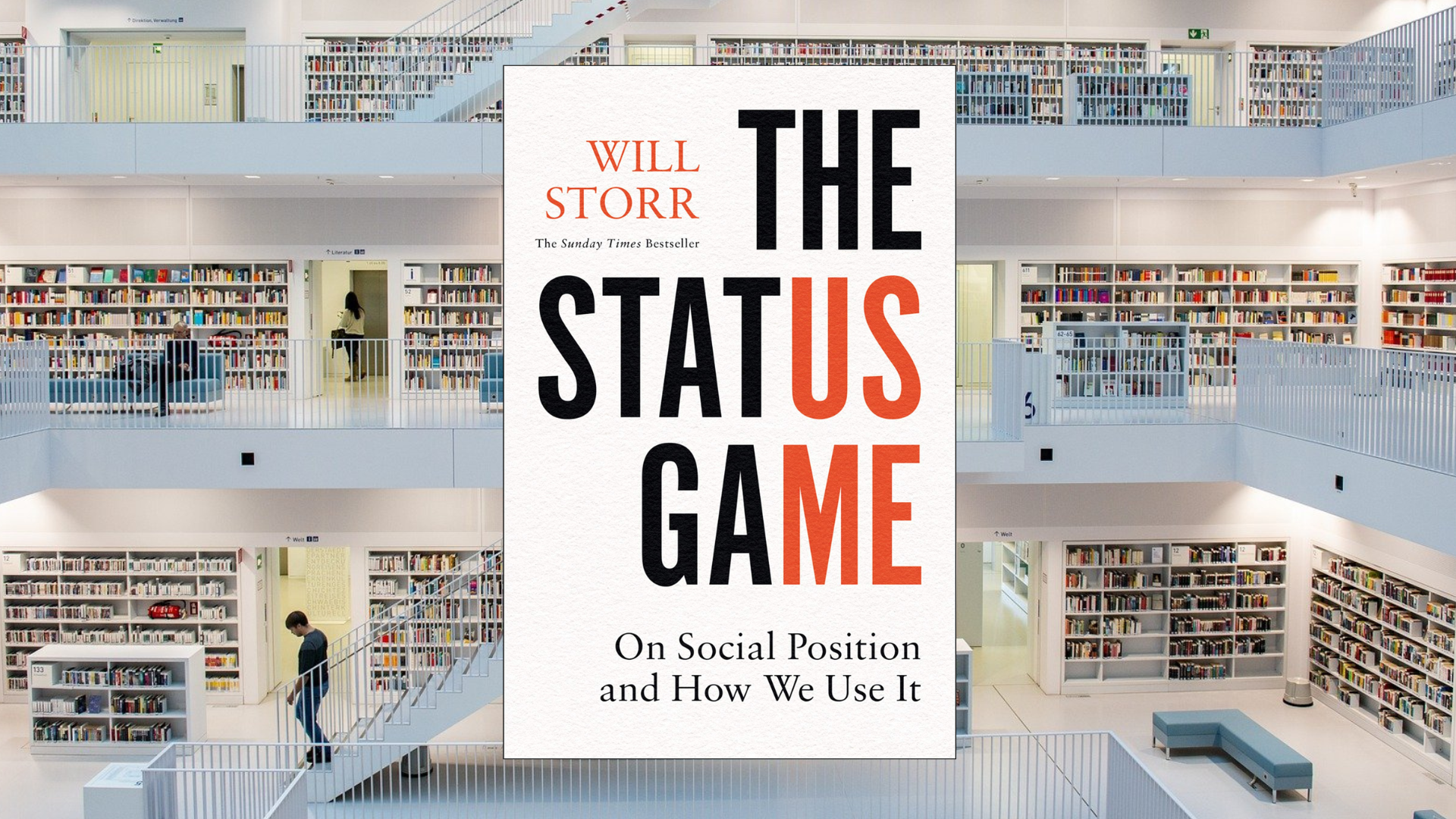
The Status Game, by Will Storr:
“We can think of our reputation as a symbolic version of us that exists in the minds of others. Human brains required the capacity to store these highly detailed symbolic selves. Our neural worlds are crowded with hallucinations of others so vivid they can almost be summoned at will. We all walk around with everyone we know crowded inside our heads.”
-Will Storr, The Status Game
Put any group of humans together, and almost instantly they'll start trying to figure out who should lead, who's most worthy of respect, and who should be praised and emulated.
Not only that, but we each carry around a sense of where we stand in that hierarchy, and many of us go to rather extreme lengths in order to rise to the top.
According to the award-winning writer and journalist Will Storr (award-winning = high status!), the "status game" that we're all playing is an invisible thread that runs through the best and the worst of what human beings do all day.
Whether we're "winning" or "losing" affects our happiness and our self-esteem, our relationships with others, our goals in life and whom we choose to copy, and even how long we'll live.
All this being the case, just think about how complicated it is to be alive!
You've got all these forces - the cravings for status and for love, social conditioning and the impact on the individual of the wider culture, the subconscious fear of death, the swirling emotional storms affecting our thoughts and actions all day long, and so much more - how do we even live? How do we make sense of it all?
For that, we should be grateful to Will Storr as he explains a few of the rules of the Game of Life...
Sample Quotes from the Book:
“It’s this distorted and partial avatar we play at life with, not our whole self. Nobody ever truly knows us. They never will.”
“The moral reality we live in is a virtue game. We use our displays of morality to manufacture status. It’s good that we do this. It’s functional.
It’s why billionaires fund libraries, university scholarships and scientific endeavors; it’s why a study of 11,672 organ donations in the USA found only thirty-one were made anonymously. It’s why we feel good when we commit moral acts and thoughts privately and enjoy the approval of our imaginary audience.
Virtue status is the bribe that nudges us into putting the interests of other people – principally our co-players – before our own.”
“One study of ninety-four wars since 1648 found 67 percent were motivated by matters of national standing or revenge, with the next greatest factor – security – coming in at a distant 18 percent.
Anthropologists Professors Alan Page Fiske and Tage Shakti Rai find that frequently, ‘decision-makers and public opinion are motivated to declare war to maintain or raise the rank of their nation vis-à-vis other nations, particularly when they feel that they have been unjustly pushed down to a low rank among other nations.’
The warring party will tend to attack in a dream of toxic morality, convinced of its virtuous intent: ‘the more a nation feels humiliated by a moral violation against it, and the more the nation experiences the act as morally outrageous, the more it seeks vengeance.'”
Read the Full Breakdown: The Status Game, by Will Storr
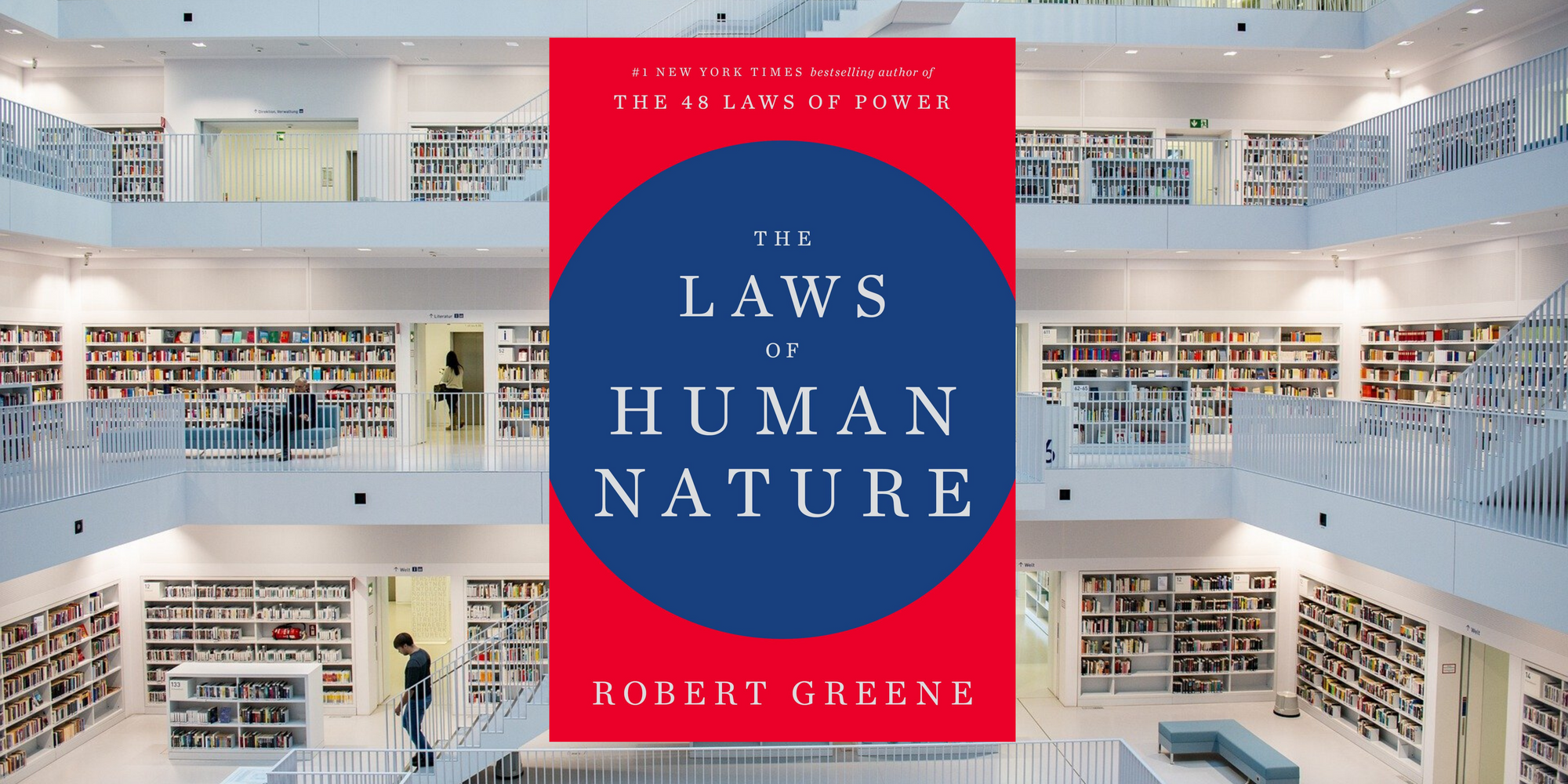
The Laws of Human Nature, by Robert Greene:
If I had had The Laws of Human Nature as a textbook in school, I would have learned something while I was there. Seriously, there is just so much here, and I doubt that anyone who has ever made a serious effort to absorb its lessons hasn't been fundamentally transformed by what Robert Greene has to teach.
We're speaking here in this book about human nature, one of the most expansive topics one could ever hope to cover in a single volume. So of course, you're not going to suddenly "understand people'' by reading it once through, but I would argue that there's not much else that could be a better use of your time.
We deal with other people all day long, and we're constantly confused and deceived by their words and actions. They do things we don't understand, for reasons we don't have access to, and not all of them have our best interests at heart. So this book is just as much about self-defense as it is about reigning in your own nature and improving the quality of your own close relationships.
But I wouldn't be doing justice to human beings if I made you think that The Laws of Human Nature is all about protection from the negative aspects of human nature. It's not that at all. Human beings are astonishing, spectacular, and extraordinary. We are amazing in our ability to connect with one another, solve problems together, console each other when faced with the inherent tragedies of human existence, and simply rise above our circumstances.
Human beings are powerful, impressive, and awesome - but we're complicated. No one has figured us out yet, and with billions of different people all running into each other, speaking all these different languages, and carrying all these different struggles inside of themselves, we're bound to enter into conflict with one another sometimes. This book is about turning inward, and understanding ourselves in new ways, so that we can take that newfound understanding back into the world with us, and co-exist without tearing ourselves and each other apart.
Sample Quotes from the Book:
“Man will only become better when you make him see what he is like.”
"The greatest danger you face is your general assumption that you really understand people and that you can quickly judge and categorize them. Instead, you must begin with the assumption that you are ignorant and that you have natural biases that will make you judge people incorrectly. The people around you present a mask that suits their purposes. You mistake the mask for reality.
Let go of your tendency to make snap judgments. Open your mind to seeing people in a new light. Do not assume that you are similar or that they share your values. Each person you meet is like an undiscovered country, with a very particular psychological chemistry that you will carefully explore. You are more than ready to be surprised by what you uncover.
This flexible, open spirit is similar to creative energy - a willingness to consider more possibilities and options. In fact, developing your empathy will also improve your creative powers."
“When we turn this around, becoming more aware of our mortality, we experience a taste of true freedom. We no longer feel the need to restrict what we think and do, in order to make life predictable. We can be more daring without feeling afraid of the consequences. We can cut loose from all the illusions and addictions that we employ to numb our anxiety. We can commit fully to our work, to our relationships, to all our actions. And once we experience some of this freedom, we will want to explore further and expand our possibilities as far as time will allow us."
Read the Full Breakdown: The Laws of Human Nature, by Robert Greene
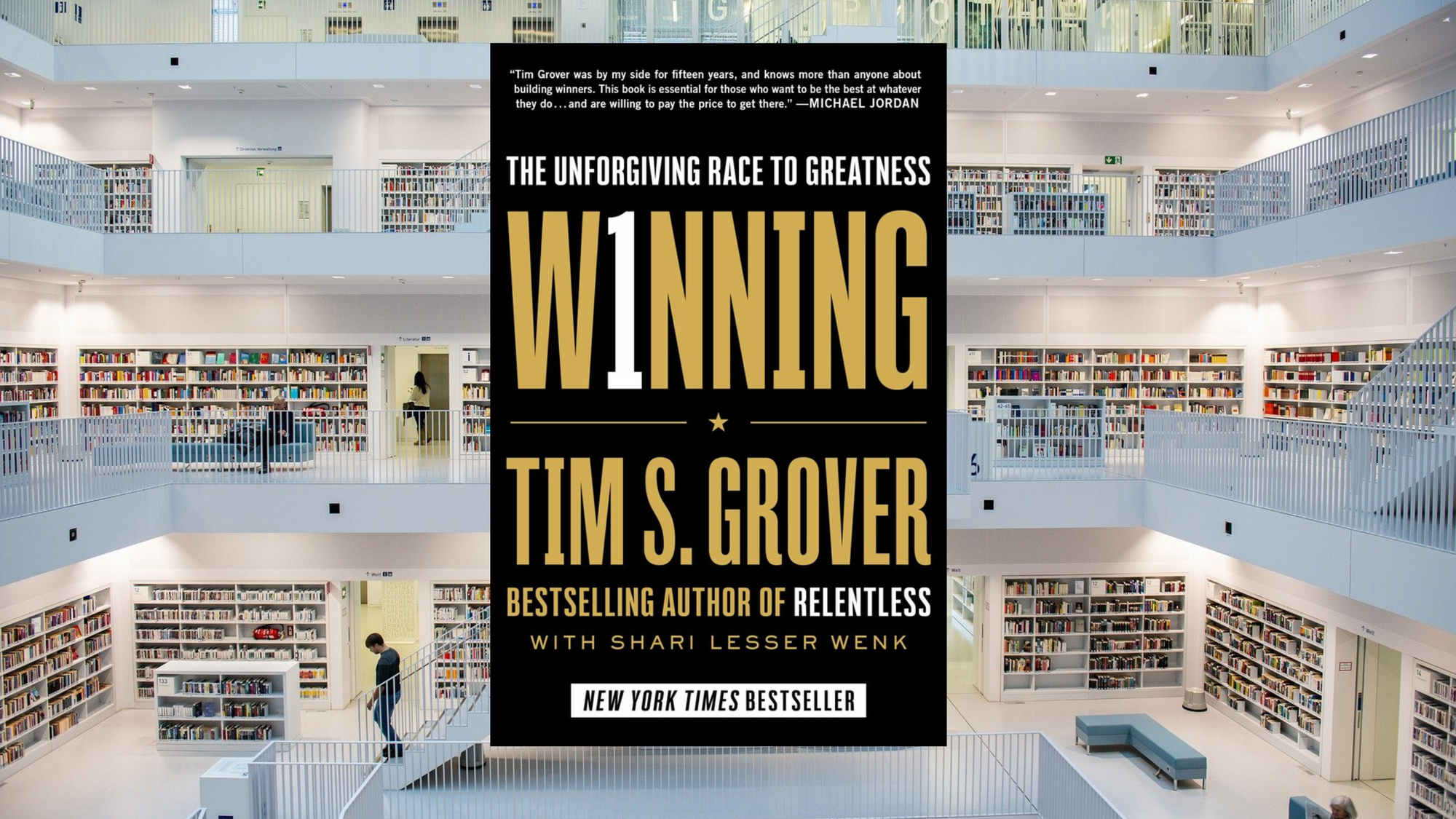
Winning, by Tim Grover:
This book has some of the most “truth per page” of any book I’ve ever read. It's also absolutely not for everybody, in the same way that not everyone is built to compete and win at the highest levels of sports and business.
The reality is that most people just do not have what it takes to succeed at the highest level, and the people who do make it are the ones who have internalized Tim Grover's message in this book. He reminds us - through his words and example - exactly why he is one of the world’s most sought-after mindset experts.
Grover is an elite performance coach with over three decades of experience training the likes of Michael Jordan (who was actually his first client ever), Kobe Bryant, Dwayne Wade, and hundreds of other world champion and Olympic athletes. That's 30+ years of being surrounded by winners - never missing a practice or a game - and refining his approach to the point where it can be delivered at your feet in the form of this truth-studded book.
"Winning isn't everything, it's the only thing," said Kobe Bryant, one of the all-time greats, and here in Winning, Tim Grover distills everything he knows about winning and lays out 13 key principles for achieving unbeatable performance.
Sample Quotes from the Book:
“Sure, you can control your competitive urges, but why should you have to?”
“All day, every day, your mental battlefield is attacked by blasts of adrenaline and anger and fear and anxiety, and other explosives too. Stress. Insecurity. Doubt. Envy. Sometimes it’s a stranger who puts them there. Sometimes it’s someone close to you. Sometimes it’s you. Most of the time, it’s you.”
“Rome wasn’t built in a day. No, it was built every day for thousands of days in a row.”
Read the Full Breakdown: Winning, by Tim Grover
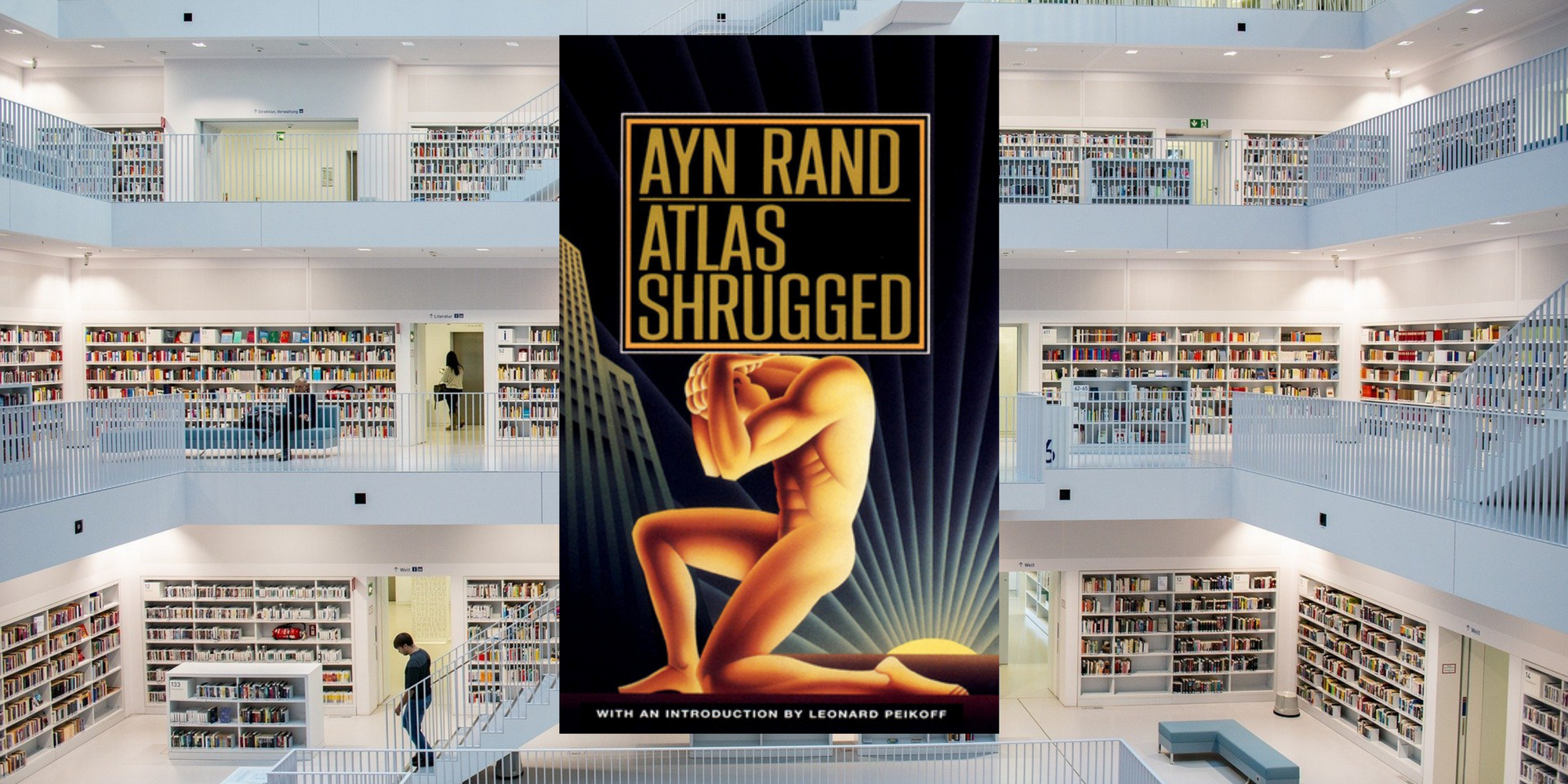
Atlas Shrugged, by Ayn Rand:
Saying that you “love Ayn Rand” is a lot like saying, “I believe in God.” The listener has to follow up with “What do you mean by that?”
Do you mean that you believe in some sort of external, all-powerful deity who casts judgment on everything you do, think, or say? Do you mean the universal flow of energy that’s been going on forever and ever? Do you mean an omnipotent Creator that made the world and just left us alone to look after it? What exactly do you mean?
Well, it’s exactly the same thing with Ayn Rand. Do you love her prose style (which leaves something to be desired)? Do you agree with her views on the absolute primacy of reason and logic (again, which leaves something to be desired)? Do you, along with Rand, positively despise government regulation? Do you believe that capitalism is the greatest thing since sliced bread - nay, that we wouldn’t even have sliced bread without capitalism?
All this is to say that when you tell someone you love Ayn Rand, they’re going to need a little bit more information. I find many of her views absolutely abhorrent, yet I can state unequivocally that she changed my life for the better.
See, Atlas Shrugged can be read in many different ways, which is probably one of the reasons why it’s still so popular today.
In some circles, it’s seen as the philosophical justification for the motto “greed is good,” which, I don’t think I have to tell you, is not something that I particularly gravitate towards.
That being said, I do share Rand’s opinion that charting your own path, maintaining an irrepressible vision for how you want your one and only life to look, and sacrificing anything and everything necessary in order to achieve it is vital to a life well-lived.
Most of the people who are really alive in this world have an inspiring vision pulling them forward and infusing every moment of their lives with meaning and depth.
In Atlas Shrugged, we have Dagny Taggart, a railroad executive who takes over her father’s company because the rest of the men in charge are so incompetent and lazy that they would run the railroad into the ground if Dagny let them. Which she won’t, because she’s a proverbial force of nature.
Rand made her into an exceptionally strong female lead who is constantly questioned by the men in the novel, constantly objected to and interfered with, and yet she manages to lift her own burden and drive progress forward.
There's more to the story, of course - so much more than just railroads and capitalism. It’s about happiness as the goal and purpose of human life, and how hard work toward a compelling vision makes a person happy.
It’s about taking responsibility; being a hero to yourself and others; creating value where none existed before, and thinking for yourself in a world where everyone wants you to think just like they do.
The book has faults, and I’m not setting up Ayn Rand as some sort of unimpeachable role model. But Atlas Shrugged teaches that creation - making something that didn’t exist before - and not apologizing for your own existence are fundamental components of human flourishing.
Sample Quotes from the Book:
“My philosophy, in essence, is the concept of man as a heroic being, with his own happiness as the moral purpose of his life, with productive achievement as his noblest activity, and reason as his only absolute.”
“The only pride of her workday was not that it had been lived, but that it had been survived. It was wrong, she thought, it was viciously wrong that one should ever be forced to say that about any hour of one's life."
"I work for nothing but my own profit - which I make by selling a product they need to men who are willing and able to buy it. I do not produce it for their benefit at the expense of mine, and they do not buy it for my benefit at the expense of theirs; I do not sacrifice my interests to them nor do they sacrifice theirs to me; we deal as equals by mutual consent to mutual advantage - and I am proud of every penny that I have earned in this manner.
I am rich and I am proud of every penny I own. I have made my money by my own effort, in free exchange and through the voluntary consent of every man I dealt with - the voluntary consent of those who employed me when I started, the voluntary consent of those who work for me now, the voluntary consent of those who buy my product. I shall answer all the questions you are afraid to ask me openly.
Do I wish to pay my workers more than their services are worth to me? I do not. Do I wish to sell my product for less than my customers are willing to pay me? I do not. Do I wish to sell it at a loss or give it away? I do not.
If this is evil, do whatever you please about me, according to whatever standards you hold. These are mine. I am earning my own living, as every honest man must. I refuse to accept as guilt the fact of my own existence and the fact that I must work in order to support it.
I refuse to accept as guilt the fact that I am able to do it and to do it well. I refuse to accept as guilt the fact that I am able to do it better than most people - the fact that my work is of greater value than the work of my neighbors and that more men are willing to pay me. I refuse to apologize for my ability - I refuse to apologize for my success - I refuse to apologize for my money. If this is evil, make the most of it. If this is what the public finds harmful to its interests, let the public destroy me. This is my code - and I will accept no other."
Read the Full Breakdown: Atlas Shrugged, by Ayn Rand
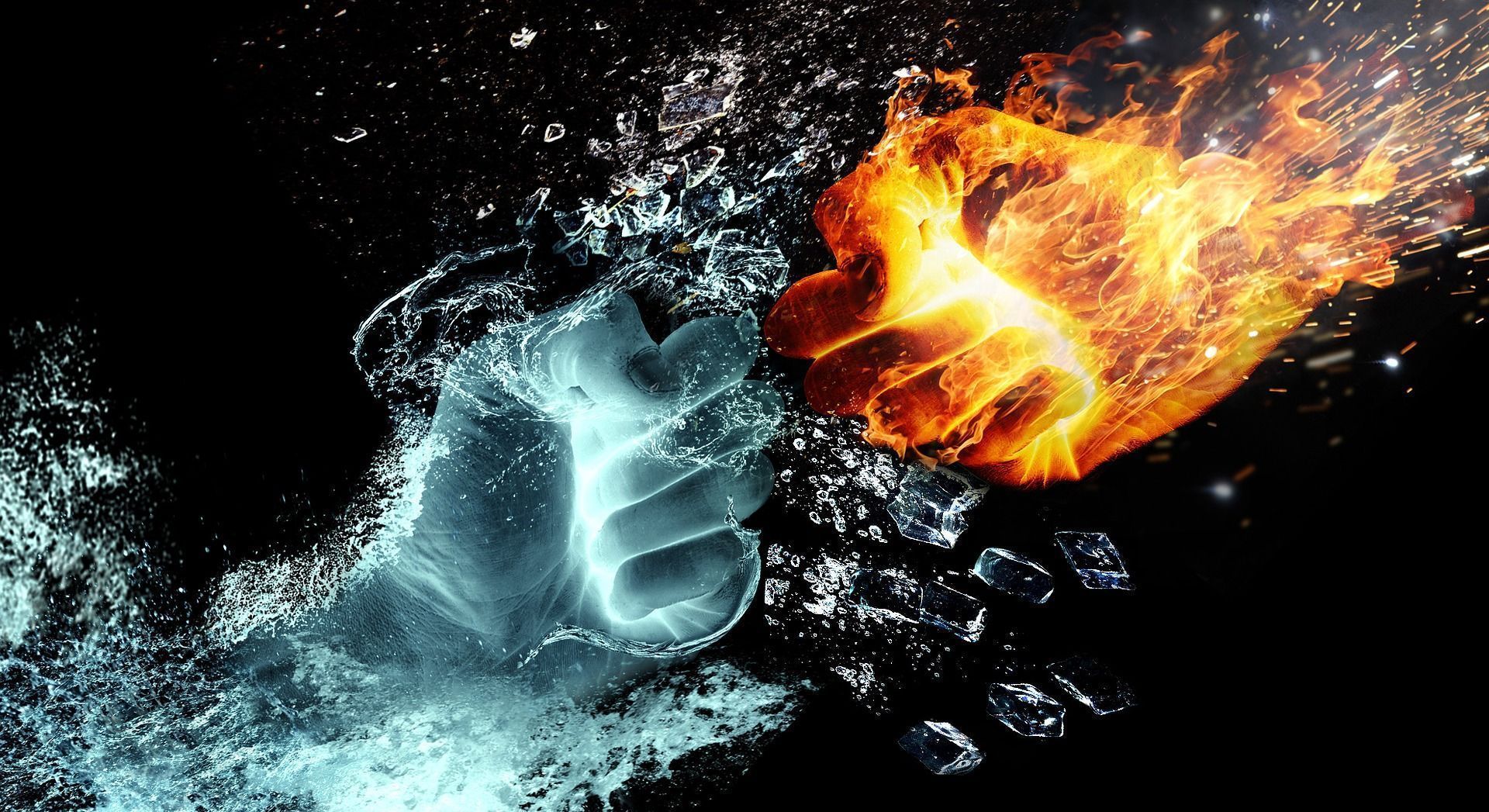
The View from the Opposition:
No one's ideas are beyond questioning. In this section, I argue the case for the opposition and raise some points you might wish to evaluate for yourself while reading this book.
#1: Callousness and the Deaths of Millions
A common criticism of Napoleon is that he was not troubled in the least about the possibility of violent death to anyone necessary in order to secure his empire and legacy. He also reinstated slavery in France's overseas colonies, and his role in the Haitian Revolution does not put him in a very positive light at all.
Then you have to mention his basically institutionalized plunder of conquered territories, and the art he stole from public and private collections across Europe and overseas. And then there are the deaths. Oh, the deaths.
Over 17 years of wars and conquests, you've got perhaps six million Europeans dead, not to mention the huge number of deaths in the colonies and other conquered lands over the course of his various campaigns.
Now, again, most of these wars were not started by Napoleon himself. As Roberts says:
“Their decrying of French imperialism was pure hypocrisy as Britain was busy building a vast empire at the time.
Napoleon boasted that he was ‘of the race that founds empires’ – but he had a different kind of empire in mind, more in keeping with those of Caesar, Alexander, and Frederick the Great.
Napoleon is often accused of being a quintessential warmonger, yet war was declared on him far more often than he declared it on others.”
So while I don't think - at all - that Napoleon was the despicable monster that the British propagandists and others tried to make him out to be, I also don't think of him as some "perfected being," and certainly not as this "enlightened" creator of modern France.
I mean, he set back European economic life for a generation, bankrupted France, lost her colonies...all while keeping this vision of being the equal of Caesar and Alexander the Great at the forefront of his mind as he went about on campaign, causing and contributing to the deaths of millions.
So..."Enlightenment on horseback"?
Reasonable people can disagree, but Andrew Roberts thinks so, and Napoleon definitely thinks so:
“I owe everything to my glory. If I sacrifice it, I lose everything. . . . I wanted to assure for France the mastery of the world.”
"The test of a first-rate intelligence is the ability to hold two opposed ideas in the mind at the same time and still retain the ability to function.”
-F. Scott Fitzgerald

Questions to Stimulate Your Thinking:
The quality of your life is determined by the quality of your questions. That's also how you get the absolute most out of any book that you decide to read:
You ask great questions the whole time - as though the book was on trial for its life.
Here in this section are a few questions that can help guide and stimulate your thinking, but try to come up with your own additional questions, especially if you end up deciding to read this book the whole way through...
#1: Do you think of Napoleon as the "enlightenment on horseback"? Was he a net positive on the course of world history, or an evil conqueror?
#2: What would you have done differently before, during, or after the Russia campaign?
#3: What do you think was Napoleon's defining characteristic?
#4: Do you believe that history is shaped by giant, impersonal forces? Or by great individuals performing heroic deeds? Both? In what percentages?
#5: Do you think there could ever be another Napoleon today? What would their rise, career, and legacy look like?
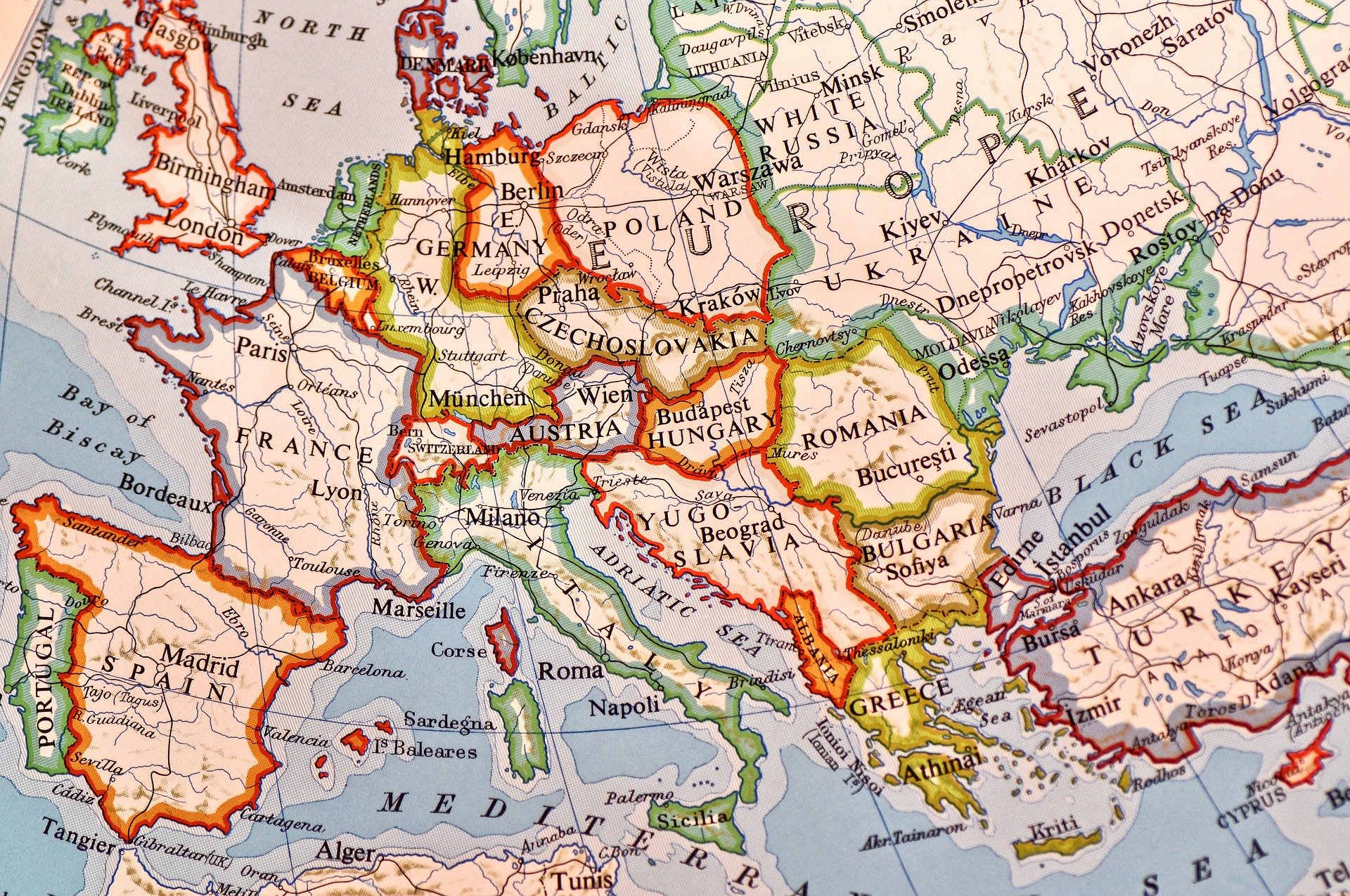
Action Steps:
So you've finished reading. What do you do now?
Reading for pleasure is great, and I wholeheartedly support it. However, I am intensely practical when I'm reading for a particular purpose. I want a result. I want to take what I've learned and apply it to my one and only life to make it better!
Because that's really what the Great Books all say. They all say: "You must change your life!" So here, below, are some suggestions for how you can apply the wisdom found in this breakdown to improve your actual life.
Please commit to taking massive action on this immediately! Acting on what you've learned here today will also help you solidify it in your long-term memory. So there's a double benefit! Let's begin...
#1: Read. Read All You Can, and Never Stop
When you look at the history of Napoleon, what you see is a commitment to constant learning, and the willingness to look silly while you learn what you need to know. He wasn't concerned whether other people thought he was intelligent or not - he looked at his own knowledge, or lack of it, identified who could fill in the gaps, and then sought out the help of those people.
Books were also a huge part of Napoleon's life, from an early age, right up until the time he began writing his own memoirs. Stories from the past invigorated him with the awareness of new possibilities, and then he built up the personal energy needed to actualize them.
#2: Take Massive Action
Napoleon was always on the go. He was always moving, always doing something - giving commands, executing orders, traveling, planning - and this gave him an edge against the older generals he was fighting against who took a more laid-back approach and paid for it.
So take massive action, and take more action than you think you'll need to take. Anything worth accomplishing is going to take a lot more work than you think it will, and you have to be willing to elevate your level of action to 10X levels if you ever want to achieve anything great.
#3: Follow Your Own Advice
The eventual defeat of Napoleon came about partially because he didn't take his own advice. He violated various military maxims during key engagements, got lazy sometimes, and made errors that a younger, more alert Napoleon would never have made.
The lesson here is to always be vigilant. Always take your own advice, if it's working, and relentlessly follow up on your victories before the tides turn. If something went according to plan, see how you can recreate that success in the future, and if you get to where you're going, never stop doing the things that got you there.


About the Author:
Prof Andrew Roberts, who was born in 1963, took a first-class honors degree in Modern History at Gonville & Caius College, Cambridge, from where he is an honorary senior scholar and a Doctor of Philosophy (Ph.D.).
He is presently the Roger and Martha Mertz Visiting Fellow at the Hoover Institution at Stanford University, a Visiting Professor at the War Studies Department at King’s College, London, and the Lehrman Institute Lecturer at the New York Historical Society.
He has written or edited nineteen books, which have been translated into twenty-three languages, and appears regularly on radio and television around the world. Based in London, he is an accomplished public speaker, and has delivered the White House Lecture, as well as speaking at Oxford, Cambridge, Yale, Princeton and Stanford Universities, and at The British Academy, the Foreign and Commonwealth Office, Sandhurst, Shrivenham and the US Army War College in Carlisle, Pennsylvania.
Additional Resources:
Andrew-Roberts.net | Main Website
Andrew Roberts on Napoleon | YouTube
Andrew Roberts vs. Adam Zamoyski - Napoleon the Great? | YouTube
This Book on Amazon:
Napoleon: A Life, by Andrew Roberts
If You Liked This Book:
The Status Game, by Will Storr
